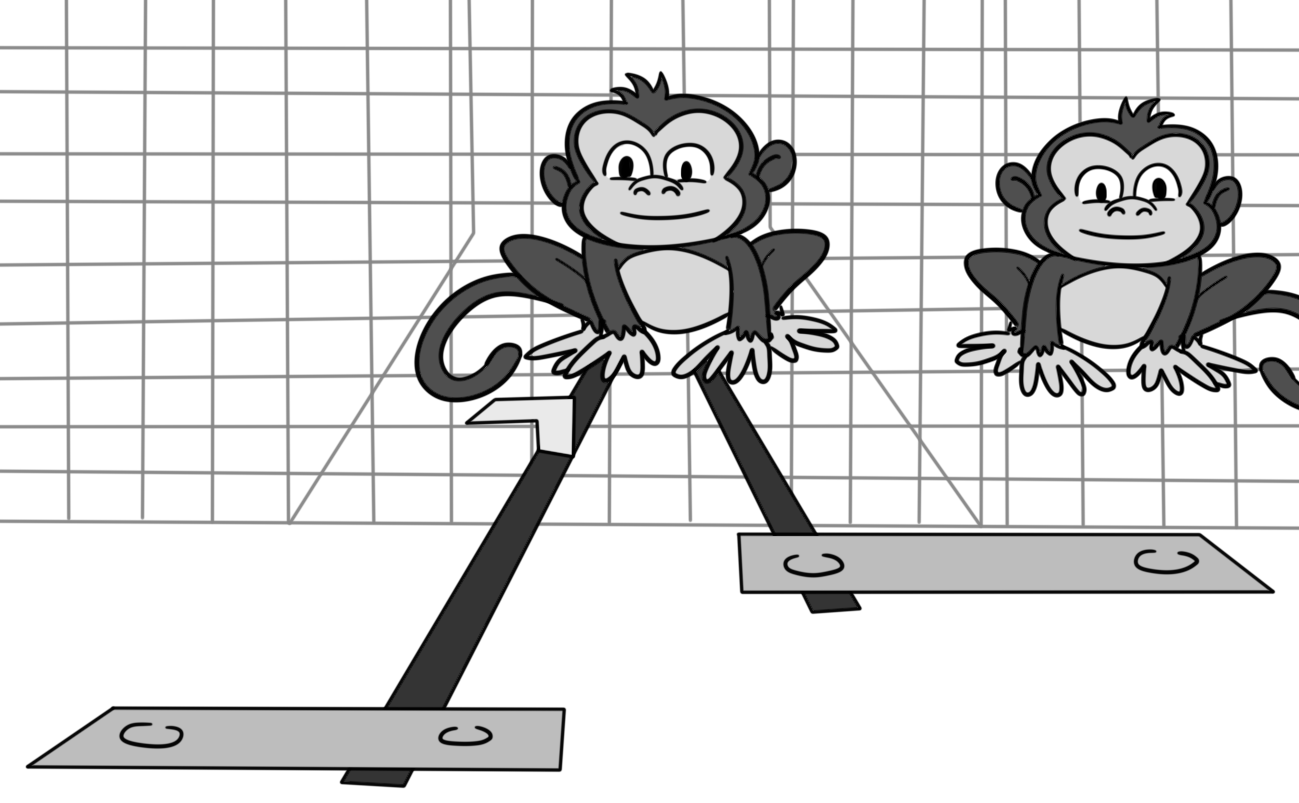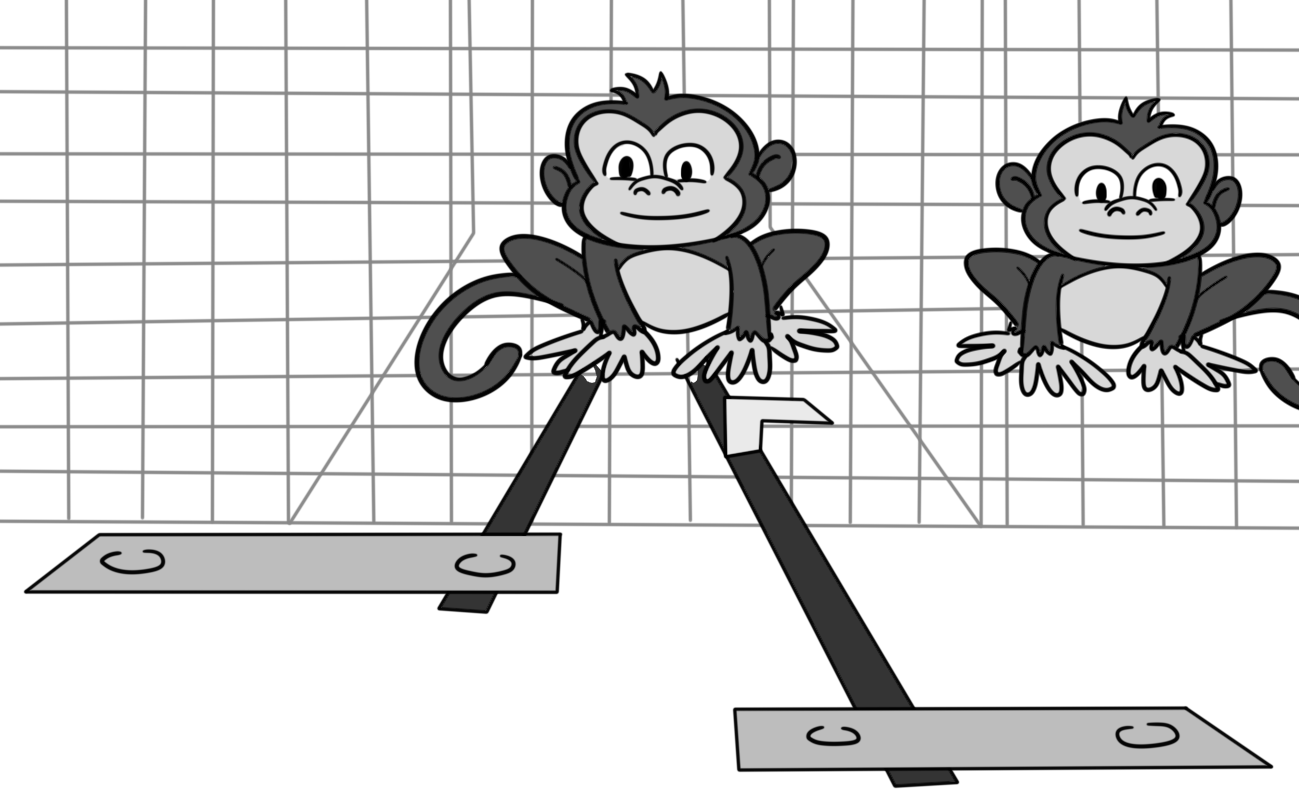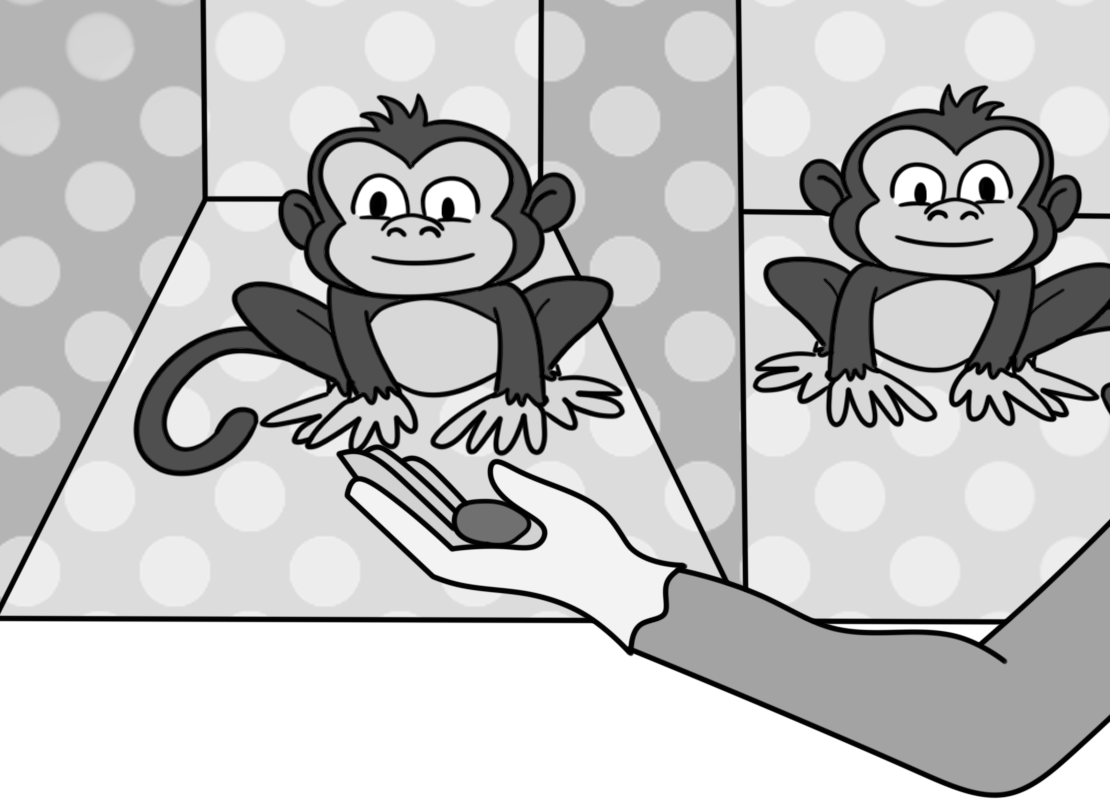16. Imagine that your friend is cutting the cake to share with all the guests at the birthday party. The first three guests are handed large pieces of cake, while you are handed a teeny-tiny one. How would you feel? Is this fair? Most of us have a clear sense of what is fair and what is not, but where does this come from? Scientists try to study fairness in primate species (灵长类物种) to understand how fairness came about.
Fairness often involves equal outcomes (平等的结果)
Do monkeys behave in ways that lead to equal outcomes? To find out, scientists give monkeys choices about how to share food. Scientists ask a monkey to choose between two options — to provide a piece of food just for themselves, or to provide food for another monkey nearby, as well as for themselves (Figure 1). If monkeys are trying to achieve equal outcomes, they would give food to both themselves and another. Do they? Sometimes.
 |  |
| The left monkey has just chosen the board to give food to himself and the neighboring monkey. | The left monkey has just chosen the board that provides food for himself only. |
(Figure 1)
Whether monkeys favor equal outcomes seems to depend on the species. The species which live in groups will prefer equal outcomes, but not all the time.
What else might be influencing whether monkeys create equal outcomes? If the two monkeys are friends, one is more likely to share food with the other. It also seems that monkeys would make the equal choice when they cannot see the actual food — some scientists use pictures of food.
But wait, does effort matter?
Scientists have developed a way to test whether monkeys prefer everyone to be paid equally for doing the same work. In this study, monkeys are trained to work for food by exchanging small coins with a scientist. To determine if and how monkeys respond to unfairness, scientists have two monkeys take turns exchanging coins and give them different food — their favorite food or a less-preferred food (Figure 2). If the monkey getting the less-preferred food refuses to keep exchanging coins, scientists conclude the monkeys respond to unfairness.
 | The monkey on the left exchanges the coin for a piece of banana. Next, the neighbor monkey will also exchange a coin, but receive a less-preferred piece of food. |
(Figure 2)
The results of the study have suggested differences across monkey species. Generally, monkeys living in groups do not respond to unfairness, while other monkeys do respond to it. However, monkeys do not appear to mind if they get a better food than others.
All in all, monkeys' sense of fairness does not seem to be as well-developed as our own. By studying their preferences for fairness and responses to unfair situations, we can learn more about how these values developed in humans. And this also helps us to better understand the natural world and how to care for animals as well.






